MARFAM FAMILY WEEKLY E-NEWSLETTER 22 NOVEMBER 2023
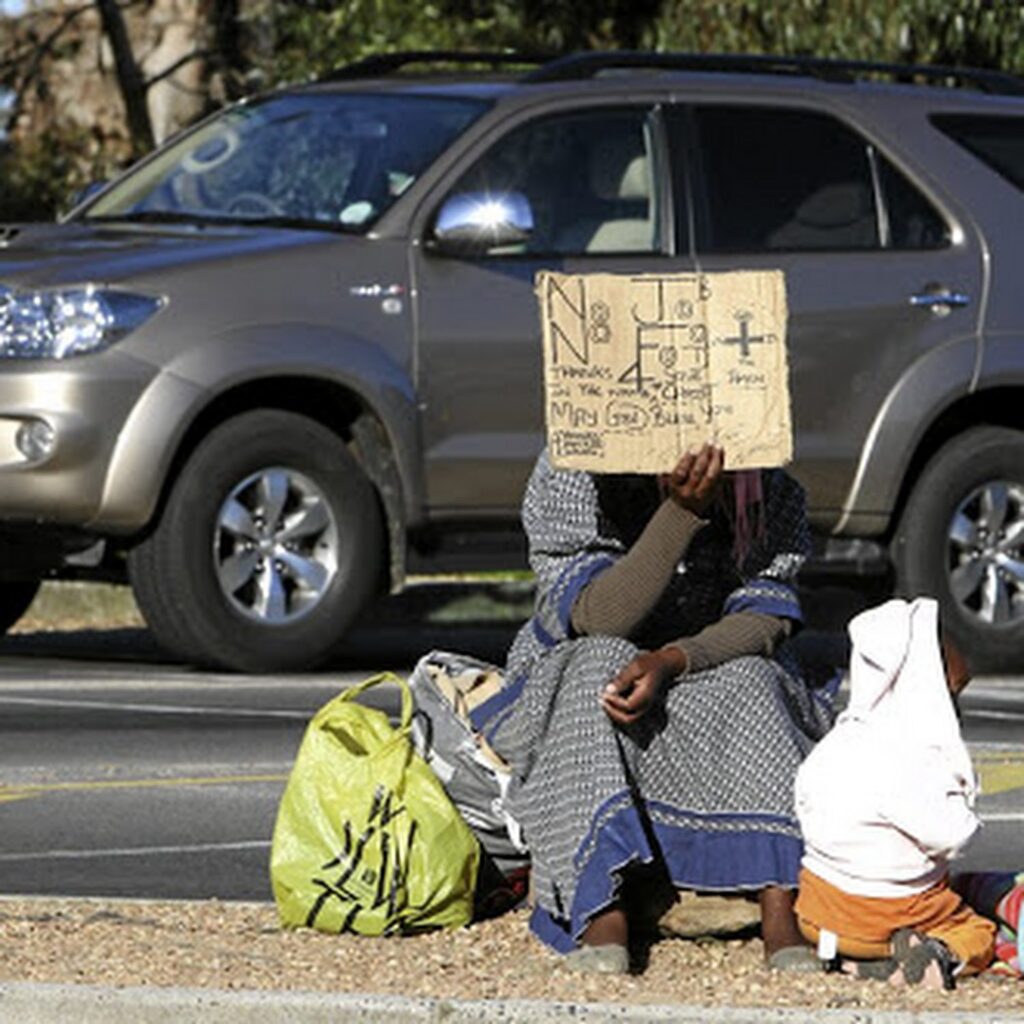
Blessed are the poor. Blessed are the poor in spirit. Maybe there are other people who, like me, find some comfort from either of these two statements, while others may see them as a particular challenge. I have a confession to make. I must admit, that as a white, middle-class elderly woman, I do not look kindly at what I would describe as typical poor people, adults and children, poorly dressed, dirty, looking depressed, living in messy, dirty surroundings. Beggars at street corners may or may not look equally poor and certainly the car guard traffic guys during load shedding hardly act poor. In Catholic urban parishes one hardly seems to find really destitute people, as most churchgoers, admirably, will make a great effort to be clean and have clean clothes even when they live in informal settlements. I find it difficult to identify those who are desperately poor, but are managing to look clean and tidy but many parishioners are very short of money as I have discovered. However too, I believe it is a known fact that apart from a few, Catholics on the whole are not good at financial support in the Church. This makes parish life and that of ministries like MARFAM, which is dependent on sales, of even very low cost publications, frustrating and difficult. So having commemorated the 7th Day of the Poor on 19 November, I am reflecting on what poverty is about, knowing full well that there is a very large number of people living below the poverty line
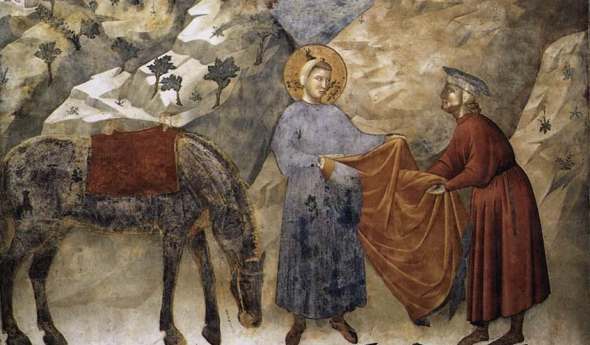
I know people who, at face value, may not really appear poor, but struggle to pay the rent, school fees and put a decent meal on the table every day. For them too, the financial stresses that they deal with do affect their quality of life and sense of well-being. I know people who spend more than they can really afford even on small luxuries, cigarettes and alcohol, but they complain constantly of having no money. Women with babies can sit idly on a suburban pavement day after day, presumably living on handouts. Is that poverty? What about the poverty chosen and lived joyfully by St Francis? But not all his brothers were happy to go to that extreme. An older person may know and worry that her savings and investments are not likely to last for the rest of her life. Is that poor? Jobless, carless, careless, loveless, homeless, cell-phoneless. Is the -less the key, while Pope Francis has reminded us more than once that “less is more.” He is expressing an attitude, being poor in spirit, not being attached to earthly belongings, but recognizing one’s complete dependence on God.
The principle of Catholic Social Teaching the “preferential option for the poor” is not easy to unpack on a practical level. Jesus even said, “the poor will always be with us,” so then, is giving the occasional handout of money, clothes or food, doing my Christian duty and is that good enough as it was for many years?
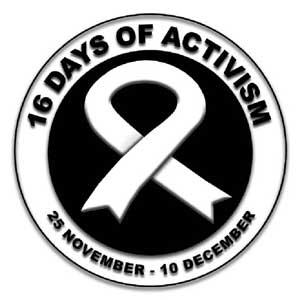
Recognizing others without judgement, accepting others for who they are, feeling compassion and empathy for others, whether their poverty is material, psychological or spiritual are part of the picture. That in itself takes conscious self-awareness of one’s innate responses. What is the purpose of providing a free meal at the Vatican or a Christmas meal for street people? Is it enough that they go back to their home on the street, but for a brief moment in time they will have felt loved… and well-fed.
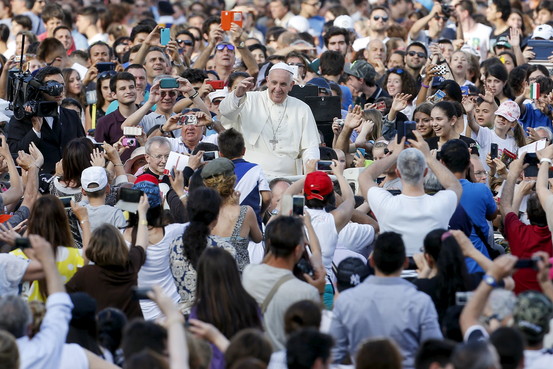
One’s attitude and understanding of the poverty must be part of one’s personal discernment and growth. I found the 2022 Message for the Day of the Poor, particularly helpful (published in MARFAM Laudato Si booklet). it is clear but still difficult to accept. It reads, “Encountering the poor enables us to put an end to many anxieties and empty fears, and to arrive at what truly matters in life, the treasure that no one can steal from us: true and gratuitous love. The poor, before the object of our almsgiving, are people, who can help set us free from anxiety and superficiality. If we want life to triumph over death, and dignity to be redeemed from injustice we need to follow Christ’s path of poverty, sharing our lives out of love, breaking the bread of our daily existence with our brothers and sisters, beginning with the least of them, those who lack the very essentials of life.”
The 2023 message describes a little of the life of the family of Tobit, the old father and Tobias, his son, who is being sent on a mission with some words of advice about righteous behaviour and care for others, especially the poor. “Do not turn your face away from someone who is poor.” His father encourages him and us too, “to all those who practice righteousness give alms from your possessions and do not let your eye begrudge the gift when you make it.” Tobit 4:7. Look the poor, or anyone, in the face, whether you are able to give or not. But then, by the same token, do we look a richer person in the face? They might think we’re preparing to beg from them.
These musings illustrate a personal struggle. This question of poor and poor in spirit is by no means simple. It is part of the journey of life, at one’s particular life stage. As a couple in a family with a number of children, the answer won’t be the same as it is for a single parent, a divorcee, a sick or disabled person, an addict choosing to live on the street, a priest, a sister or the Pope. We can all just do our best to follow Jesus’ way, our way. And follow him with joy.

THOUGHT FOR THE DAY 22 NOVEMBER. RESPECT THE DIGNITY OF THE HUMAN PERSON
22 November. The Bible study group was quite shocked when they compared Luke’s and Matthew’s versions of the parable of the Talents. How could Jesus be talking about slaying the man who didn’t make any profit? They carefully studied the two versions and some commentaries and came to realise that in Luke Jesus was portraying a cruel, tyrannical ruler who would readily kill someone. The group also read the account of the martyrdom in Maccabees of 7 brothers and their mother. They then considered whether all this was any different to our society today, in the world, with its cruel wars, the country or even in homes where conflict is common and gender based violence is at pandemic proportions. How much unacceptable violence is taking place and why?
Reflect, share, Scripture. In those days it happened that 7 brothers and their mother were arrested and being compelled by the king under torture to partake of unlawful swine’s flesh. 2 Mac 7:1, 20-3. The harsh king in the parable of the talents commanded his servants, “But as for these enemies of mine, who did not want me to reign over them, bring them here and slay them before me.” Luke 19:11-28. Pope Francis Today in many places we hear a call for greater security. But until exclusion and inequality in society and between peoples is reversed it will be impossible to eliminate violence. Just as goodness tends to spread, the toleration of evil, which is injustice, tends to expand and quietly to undermine any political and social system, no matter how solid it may appear. EG 59 It frequently becomes clear that in practice human rights are not equal for all. Respect for those rights is the preliminary condition for a country’s social and economic development. When the dignity of the human person is respected and his or her rights recognised and guaranteed, creativity and interdependence thrive and actions further the common good. FT 22. Action and prayer: Remember in prayer the needs of those we have loved and lost.

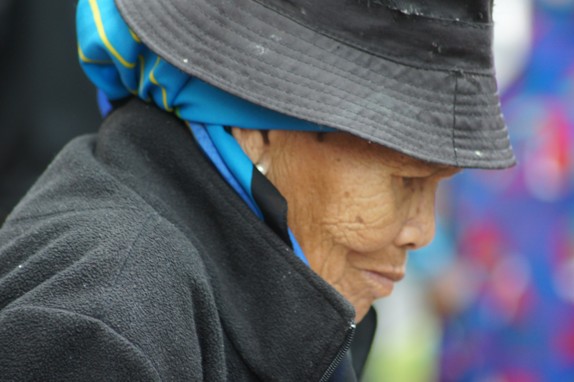
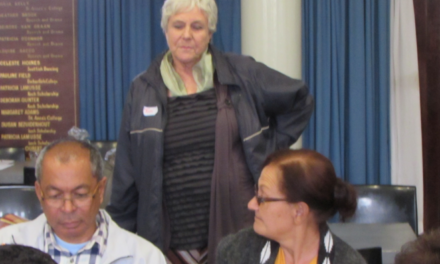
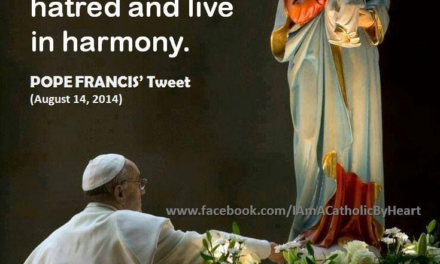
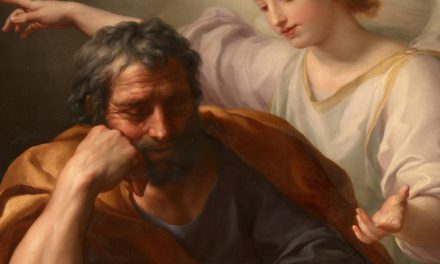
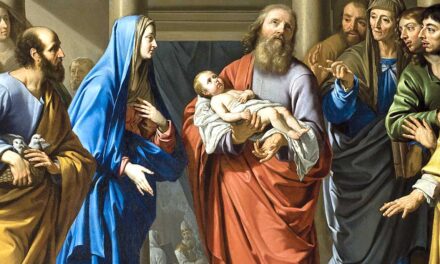
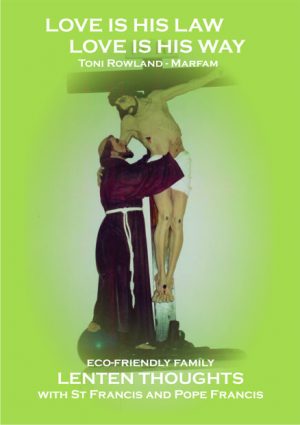
Recent Comments